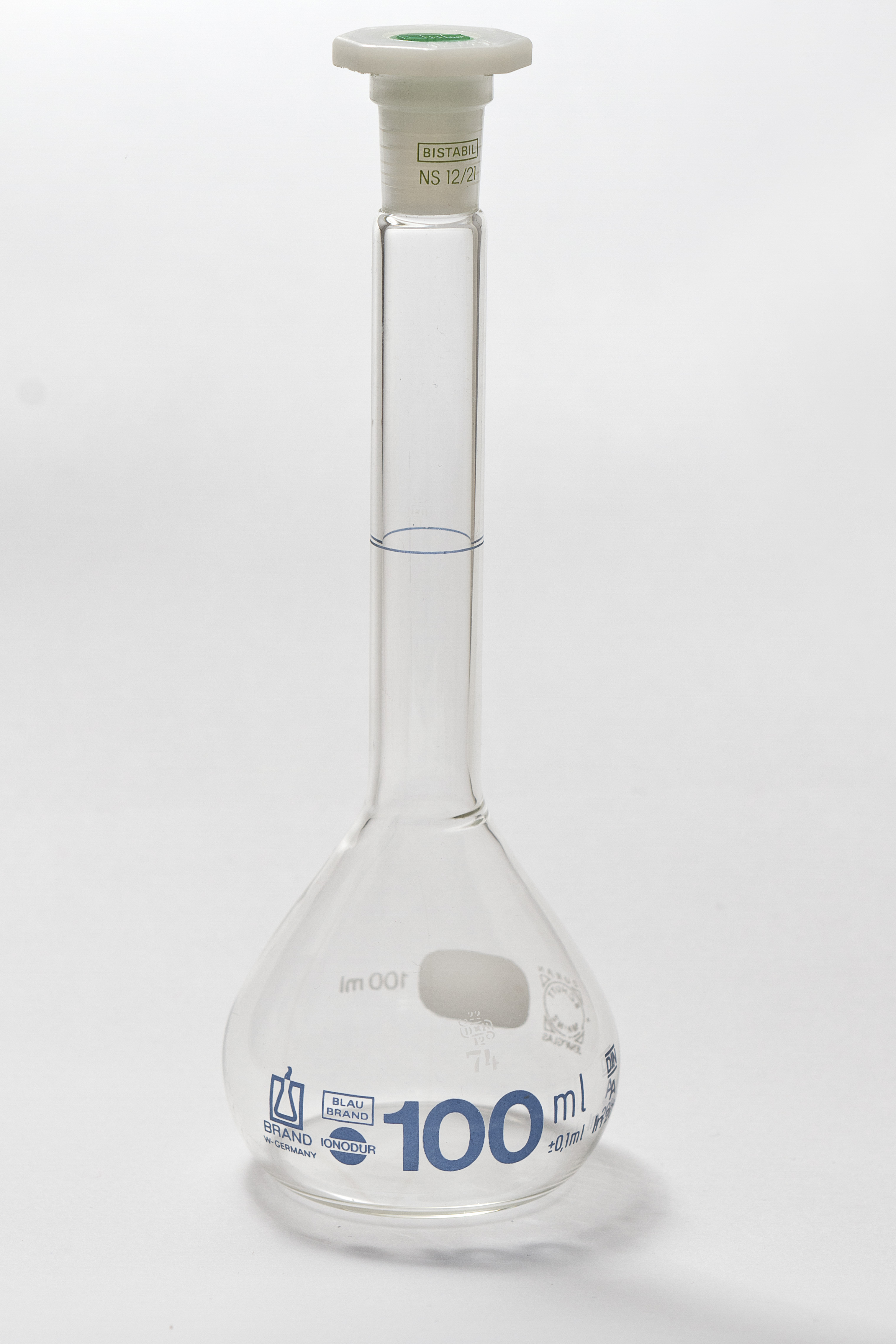Fudging Work and Rationalization
If you want to do extraordinary things, you will need to do your best.
In practical sciences, this can come as a form of precision, typical analytical chemistry is done to some degree by hand (!) and involves literally weighing out milligram-precise quantities of substances, and putting them into sub-millilitre-precise quantities of solvents. It is easy to go wrong, or to be lazy. The most accurate flasks look like this:

Note the single line. If you overshoot the volume, you have to start again. This is a real pain, and can sometimes take tens of minutes. It’s also a little embarrassing. But what is overshooting? There’s only a certain precision a human can go to, and after all, if you’re only half a percent over it can’t make much of a difference, can it? These mental patterns are easy to fall into, and they look like bargaining with the universe.
The accuracy of your results doesn’t depend on how hard it was to measure out the right volume. They depend on how accurately you measured that volume. The universe cannot be bargained with.
It’s a sort of rationalization, at least that’s how it feels to me, when I fall into it. The feeling of rationalization is one of the most important ones to be able to notice as rationalists. I think there are a few reasons for this beyond the standard ones:
I expect to be punished for bad work on some level. When this happens, we bargain with the person doing the punishing, which is reasonable. If someone says “you measured that volume wrong”, things like “well it’s pretty much close” and “but measuring volumes is really hard!” may well be reasons for them to forgive you. But they are not reasons why the volume is right. When you’re doing work like this, it’s absurd to feel guilty at an occasional mistake, but unfortunately the guilt-making part of the brain doesn’t know this.
I want to protect my opinion of myself as skilled. This has ruined many scientists’ careers, when their results are disproven, they turn to fraud.
I want to keep doing things without having to redo the work. Schools and universities teach us that failed work is not something to redo. For the most important work (exams) redoing them is forbidden! In the real world, the more important the work, the more important it is to redo it if it’s wrong. Also, redoing the work is lots of effort, and I want to move on to the next bit of the experiment.
As you may have guessed, this applies to many things beyond measuring out a volume. A general term might be “fudging”. This is when we thoroughly convince ourselves that we shouldn’t have to redo some work, and then slip sideways into the world where the work is actually good. Again, very similar to rationalization, where we convince ourselves that something really should be true, then slip sideways into thinking that it is true.
This is an great sort of rationalization to train yourself on, for a few reasons:
The costs of doing some slightly subpar work are generally not too large.
I think it’s one of the most common pieces of rationalization around
There’s no actual, permanent status or material loss associated with correcting it, so it’s not too painful
The truth is there in front of you. The truth will also probably be revealed later
If you can learn to recognize this, you’ll become better at noticing the tension associated with rationalization in general, which is one of the most important rationalist techniques out there. Fudging work isn’t half as dangerous as fudging beliefs.
But in most cases, doesn’t 0.5% really not make much of a difference? I don’t know enough to say in chemistry, but at least in general, such that not getting hung up on tiny amounts is probably correct?
I think the general case of what I was describing isn’t always 0.5% difference, it’s any mistake which it’s reasonable to make, but not acceptable to leave uncorrected.